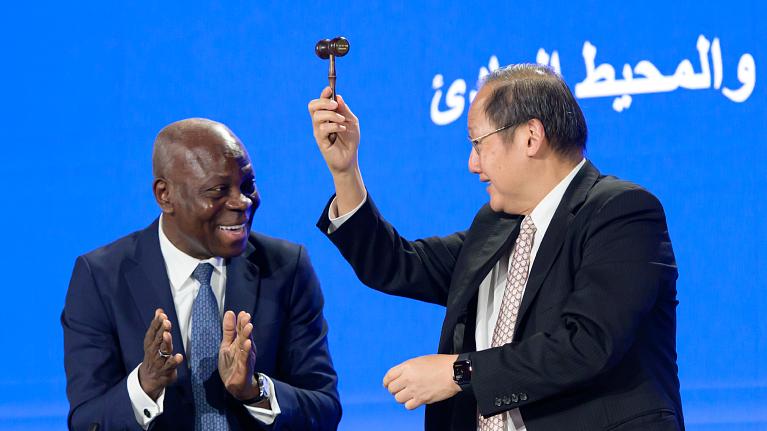The 17th Asia and the Pacific Regional Meeting (APRM) of the International Labour Organization (ILO) has concluded with governments, workers’ and employers’ organizations agreeing to bolster efforts to achieve social justice and decent work for all.
At the APRM closing ceremony, delegates endorsed the Singapore Statement which ILO’s Director-General Gilbert F. Houngbo welcomed as, “a shared vision of the region’s priorities for national action among the ILO constituents and with ILO support in the coming years.”
The Statement outlines how since the last APRM in Bali, Indonesia in 2016 the COVID-19 pandemic had unleashed an ‘unprecedented social and economic crisis on the regions’, costing millions of lives, devastating businesses and jobs. While there are signs of recovery, it remains uneven and additional crises such as climate-related natural disasters and steep rises in food and energy prices had compounded the impact on labour markets.
In view of the challenges as well as emerging opportunities faced across Asia, the Pacific and Arab States, the statement highlights a series of priorities for action at national level. High amongst these is the need to ratify ILO fundamental conventions and further strengthen the capacities of government, employer and worker representatives to carry out effective social dialogue.
The Statement urges governments and social partners to ensure labour protection for all through the promotion of freedom of association and the effective recognition of the right to collective bargaining.
ILO Director-General Gilbert F. Houngbo and Singapore Minister for Manpower Dr Tan See Leng mark the end of the APRM. It calls for action to close gender gaps and encourages ILO member countries to consider the ratification and effective implementation of related international labour standards, accelerate the transition from the informal to formal economy as well as strengthen governance frameworks to protect the rights of migrant workers. It also calls for a just transition that helps build environmentally sustainable economies and societies in the face of climate change.
Revitalizing productivity growth and skills development is stressed in order to provide more and better jobs with particular focus on digital transformation, digital divides and lifelong learning.
The Statement highlights the need to reinforce the foundations for social and employment protection and resilience. This includes expanding social protection to all workers, strengthening labour inspections systems, enhancing occupational safety and health (OSH), addressing the rising costs of living with policies for adequate, fair, non-discriminatory wages as well as eliminating all forms of forced and child labour.
The Statement furthermore confirms the commitment of governments and social partners across the regions to engage in consultations towards the development of a Global Social Justice Coalition.
“What has tied you together this week has been your commitment to the principles of social dialogue and your dedication to work together towards a common understanding of how we can do better in renewing social justice and achieving a human-centred recovery,” he said.
The ILO is the United Nations specialised agency dealing with work-related issues. The 17th APRM was attended by 388 delegates – including 22 ministers and vice-ministers – representing governments and workers’ and employers’ organizations from 35 countries in Asia, the Pacific and Arab States region.


























